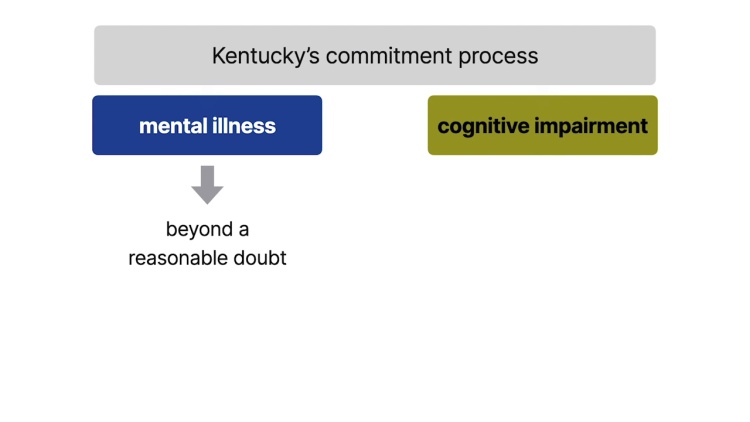Heller v. Doe
United States Supreme Court
509 U.S. 312 (1993)
- Written by Rebecca Wilhelm, JD
Facts
Kentucky law permitted the involuntary commitment of mentally ill and cognitively impaired persons. However, to do so, the state had to prove that the person was dangerous, treatment would be reasonably beneficial, and there was no less restrictive alternative. The burden of proof to establish these three requirements for the mentally ill was “beyond a reasonable doubt.” The burden of proof for the cognitively impaired, however, was “clear and convincing evidence,” which was an easier standard of proof. A class of involuntarily committed cognitively impaired persons (plaintiffs) sued Heller (defendant), a Kentucky official, arguing that there was no rational basis for imposing different burdens of proof, and doing so therefore violated the Equal Protection Clause. The district court held in the class’s favor, and the court of appeals affirmed. The United States Supreme Court granted certiorari.
Rule of Law
Issue
Holding and Reasoning (Kennedy, J.)
Dissent (Souter, J.)
Dissent (Blackmun, J.)
What to do next…
Here's why 907,000 law students have relied on our case briefs:
- Written by law professors and practitioners, not other law students. 47,100 briefs, keyed to 996 casebooks. Top-notch customer support.
- The right amount of information, includes the facts, issues, rule of law, holding and reasoning, and any concurrences and dissents.
- Access in your classes, works on your mobile and tablet. Massive library of related video lessons and high quality multiple-choice questions.
- Easy to use, uniform format for every case brief. Written in plain English, not in legalese. Our briefs summarize and simplify; they don’t just repeat the court’s language.





